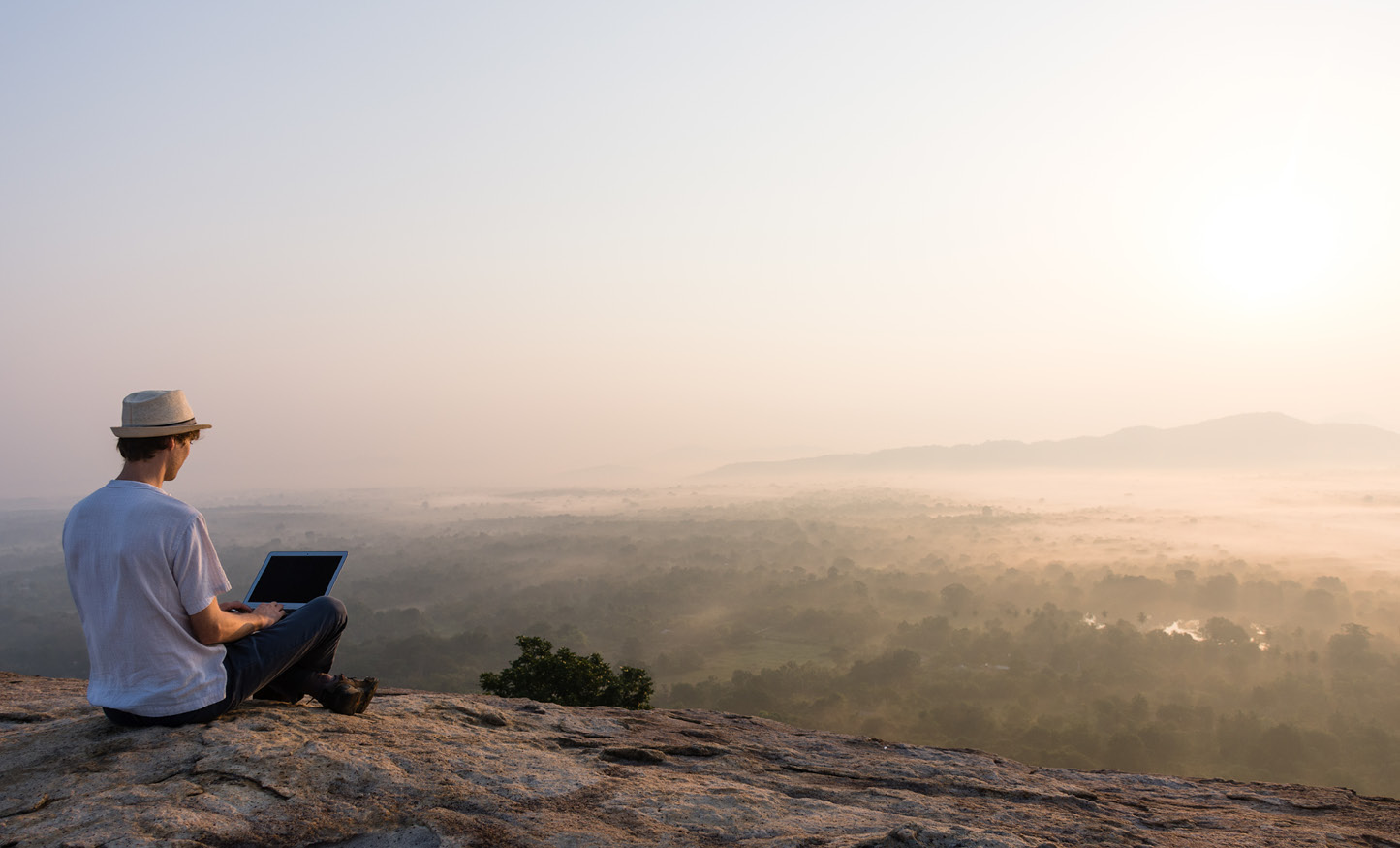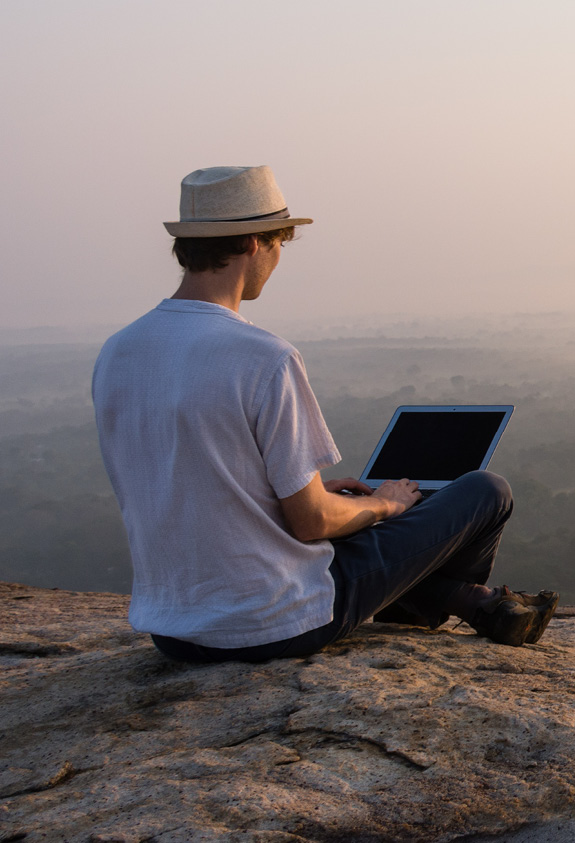


With the help of Frédéric Frère, owner of Portugal-based travel, mobility and events group Embrace, we assess the longer-term future for luxury travel, with some added forecasts for corporate travel and events.
It doesn’t take Nostradamus to predict that when we are finally released from the grip of Covid-19, and can travel again, there will be a spike of holiday bookings almost unprecedented in scale.
But what happens after that, when the initial tide of travel recedes and something closer to business as usual takes its place? Is travel and tourism going to be permanently changed? Will our habits – whether luxury or mass-market customers – have shifted as a result of our experience over the past year?
Frédéric Frère, Co-founder and Group Leader at Embrace Group,believes it will be more a case of accelerating and cementing trends that were already apparent before the pandemic hit.
“The first thing to remember is that the concept of luxury travel is a very personal matter and means different things to different people,” he says. “For some it means maximum services and comfort; while for others – especially the wealthiest travelers – real luxury is about authenticity, personalization, privacy and genuine uniqueness.
“However, across all consumer groups we were seeing a move towards more sustainable and authentic experiences, and I think this is being accelerated by the current situation. It means that some of those who, in the past, may have consumed travel a little like fast food will in future seek more individual and authentic experiences; while those fortunate enough to travel in the luxury segment will aim for something even more tailored than before.”

The challenge for hospitality operators is how to deliver greater authenticity and personalization in the ways they interact with customers. “When we are in a hospitality space we love to be recognized, to feel we are dealing human to human, not machine to human. Technology can support the human element, but it cannot replace it,” says Frédéric.
For you and you alone
These demands are especially relevant for specialist travel advisors operating in the luxury spere. Frédéric has just such a business within his group: Allways, an agency which creates unique, customized trips that can be built around romance, activity or other themes.
As a boutique operation, Allways is able to punch above its weight by being part of the Serandipians (formerly Traveller Made) network. This gives Allways’ travel designers ready access to an international community of destination experts, together with an opportunity to piggy-back benefits negotiated with operators at corporate level by Serandipians.
Although business remains well below the peak seen in 2019, customers are still booking future travel in anticipation of life after Covid. So what sort of trends are the Allways team picking up on?
“Domestic and close to home travel is a reality that is with us now and will be so until the crisis fades into history,” says Frédéric. “People are valuing safety and peace of mind, and reducing the risk of being stuck somewhere far away due to the sudden imposition of mobility restrictions.
“We saw this with the explosion in domestic travel last summer. People were enjoying the fact of being not too far from home but still able to do something different. Travelers are realizing that it is the uniqueness of the experience that counts, and how it imprints on your memory. Sometimes this can be achieved next door, although for the younger generations of course there’s still a big drive to discover the world and collect destinations.”

“Some of those who, in the past, may have consumed travel a little like fast food will in future seek more individual and authentic experiences; while those fortunate enough to travel in the luxury segment will aim for something even more tailored than before.”
Frédéric Frère, Co-founder and Group Leader at Embrace Group
Serandipians recently shared insights on other key luxury travel trends with its community. Several can be grouped around the theme of authenticity and sustainability that Frédéric previously referred to – they include a growing preference for trips that provide access to nature and open spaces; also sports, wellness and healthy lifestyles, together with opportunities for self-improvement.
Workcation situation
The continued blurring of boundaries between our working and personal lives – for many a trend hastened by the enforced exodus from the office – has also prompted an uptick in so-called ‘workcations’, where people swap remote working at the kitchen table for somewhere far more appealing, such as a holiday destination.
“This is something we are already seeing a lot of,” notes Frédéric. “The frontier between working time and leisure time is nowhere near as fixed as it was. And since we have both a corporate and a luxury leisure travel business within the Travelstore group, we have some very interesting opportunities to up-sell and cross-sell.”
From an organizational standpoint, the move towards remote working and away from the centralized office is a curve that Embrace is very much ahead of, having implemented increasing levels of remote working over the past few years.
Frédéric explains, “Around five years ago I attended a corporate travel conference organized by American Express, with whom we are partners. One of the presentations featured travel consultants who worked remotely, and the message was that without the daily commute they were happier, closer to their families and ultimately delivering a better service to their customers.
“As a growing business, we were going to have to pay for more office space; so I decided to offer a remote working option instead. Some of my colleagues thought I was crazy, but we made sure that every role had agreed productivity metrics, so we could measure by output. In a way it meant that the Covid lockdowns had less of a dramatic impact, because our people were already set up with laptops and good connectivity at home.”
“Some of my colleagues thought I was crazy, but we made sure that every role had agreed productivity metrics, so we could measure by output.”
Should this become the norm for businesses across the corporate world, Frédéric sees a major opportunity for players in the corporate events space. “Working from home is one thing, but the office provides a physical, tangible space in which employees can gather and interact. Without it, some sort of alternative will be needed. I can see a big growth in company events and get-togethers organized in ‘third party’ spaces. It’s one of the reasons why I’m optimistic for the longer term future of the corporate events industry.”
In fact, Frédéric has similar optimism for the longer term health of all areas of the travel and events industry, even though he remains cautious on the immediate prospects.
“There’s no denying that technology has helped to keep us together during this period; but I think we are all suffering from digital fatigue after so many Zoom meetings. Social gatherings without distancing will be the next big thing in town, as companies invest in putting their people back together. And in leisure travel I feel sure we will see the phenomenon of ‘revenge consuming’, as people express their need to celebrate and enjoy life again after so many months of deprivation.”
To find out more about the Embrace Group, visit the website
Make Luxury your specialization
Our Bachelor’s in International Hospitality Business offers a final semester specialization in Luxury Brand Management – a perfect launchpad for a career in luxury.

















